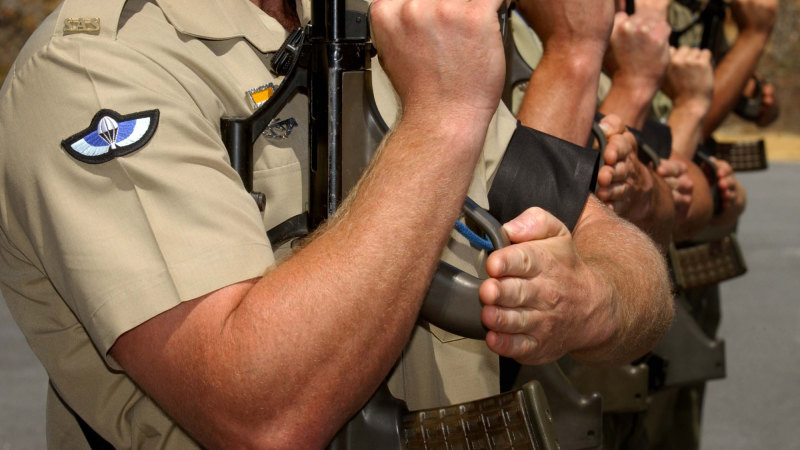Time to move on from Afghanistan war crimes: parliamentary committee

Save articles for later
Add articles to your saved list and come back to them any time.
Australia could suffer a wave of veteran suicides similar to that after the Vietnam War unless the nation moves past a focus on wrongdoing by Australian troops in Afghanistan and recognises the admirable work of Special forces soldiers, according to a bipartisan parliamentary committee.
The Joint Standing Committee on Foreign Affairs, Defence and Trade has also expressed alarm that the defence force’s war-fighting abilities will soon be degraded by the constant need to respond to natural disasters, leaving the nation vulnerable to attack by hostile forces.
Australia could suffer a wave of veteran suicides similar to that after the Vietnam War unless the nation moves past a focus on wrongdoing by Australian troops in Afghanistan, a parliamentary committee has recommended.Credit: Fairfax
Labor MP and defence subcommittee chair Julian Hill said there had been “a clear and unequivocal acknowledgment by senior leaders of an institutional failure over a decade ago in Afghanistan in upholding international law and the standards expected”.
“The subcommittee concluded that, frankly speaking, it is time to draw a line in the sand and
rebalance our national conversation about this period,” Hill wrote in the forward to a report tabled in parliament on Thursday.
“Most Australians who served in Afghanistan did so with distinction.”
Hill wrote that the Special Air Service Regiment (SAS) “has a proud history, has accepted responsibility, sought to learn from past cultural failings and transformed”.
“As a society, Australia risks repeating another Vietnam and callously increasing veteran
suicide if we lose perspective and balance,” he wrote, summarising the views of the multi-party committee.
The Brereton Report, delivered in November 2020, found “credible” evidence of allegations that 25 Australian soldiers had murdered 39 Afghan civilians, and pointed to a disturbing “warrior culture” that had developed within elements of the SAS.
The Age, The Sydney Morning Herald and The Canberra Times won a landmark defamation case brought by decorated former SAS soldier Ben Roberts-Smith in June after the court found they had proven he was a war criminal, murderer and bully.
Roberts-Smith is appealing the decision.
While Australians rightly expect public institutions to confront wrongdoing and for individuals to be held to account, Hill said: “Past failures, of course, in any human endeavour must be kept in perspective and need not define an institution or every individual provided that change has occurred.
“Public discourse and some media reporting in relation to these events has implicitly and wrongly conflated the past and the present.
“The events of concern occurred well over a decade ago.
“The rightful acceptance of institutional and collective responsibility for cultural failings, and the process of holding individuals to account, must not be allowed to tar the reputations of the majority of those who served then and who serve today.”
The tabling of the report came a day after royal commissioner Nick Kaldas told the National Press Club the defence establishment was not doing enough to tackle a crisis of veteran suicide, accusing top brass of “going through the motions” rather than trying to create meaningful change.
The committee also said it was firmly of the view that the defence force “must be seen as a force of last resort to aid the civilian community in natural disasters” and to only be called upon when the state and territory emergency services are genuinely overwhelmed.
“The ADF cannot continue to be seen as some sort of ‘shadow workforce’, especially in circumstances where certain states or territories have not adequately resourced and increased
their own capabilities, and community resilience and responses,” the report said.
With half of all Defence members being called upon to provide disaster relief over recent years, the report found there “a real risk now that the ADF’s war fighting capabilities will soon be degraded”.
“Put plainly again, if the civilian community are over-reliant on the ADF to provide responses to now predictable annual natural disasters in Australia and our near region, this provides an easy opportunity to take hostile cyber, kinetic or hybrid actions coercing governments to make impossible choices,” the report says.
“These words and these conclusions should not be taken lightly by Australians or any parliamentarian.”
The government’s defence strategic review, released in April, recommended that defence personnel only be used as a “force of last resort” to ensure members of the military are not distracted from their responsibility to defend the nation.
If you are a current or former ADF member, or a relative, and need counselling or support, contact the Defence All-Hours Support Line on 1800 628 036 or Open Arms on 1800 011 046.
The Morning Edition newsletter is our guide to the day’s most important and interesting stories, analysis and insights. Sign up here.
Most Viewed in Politics
From our partners
Source: Read Full Article
